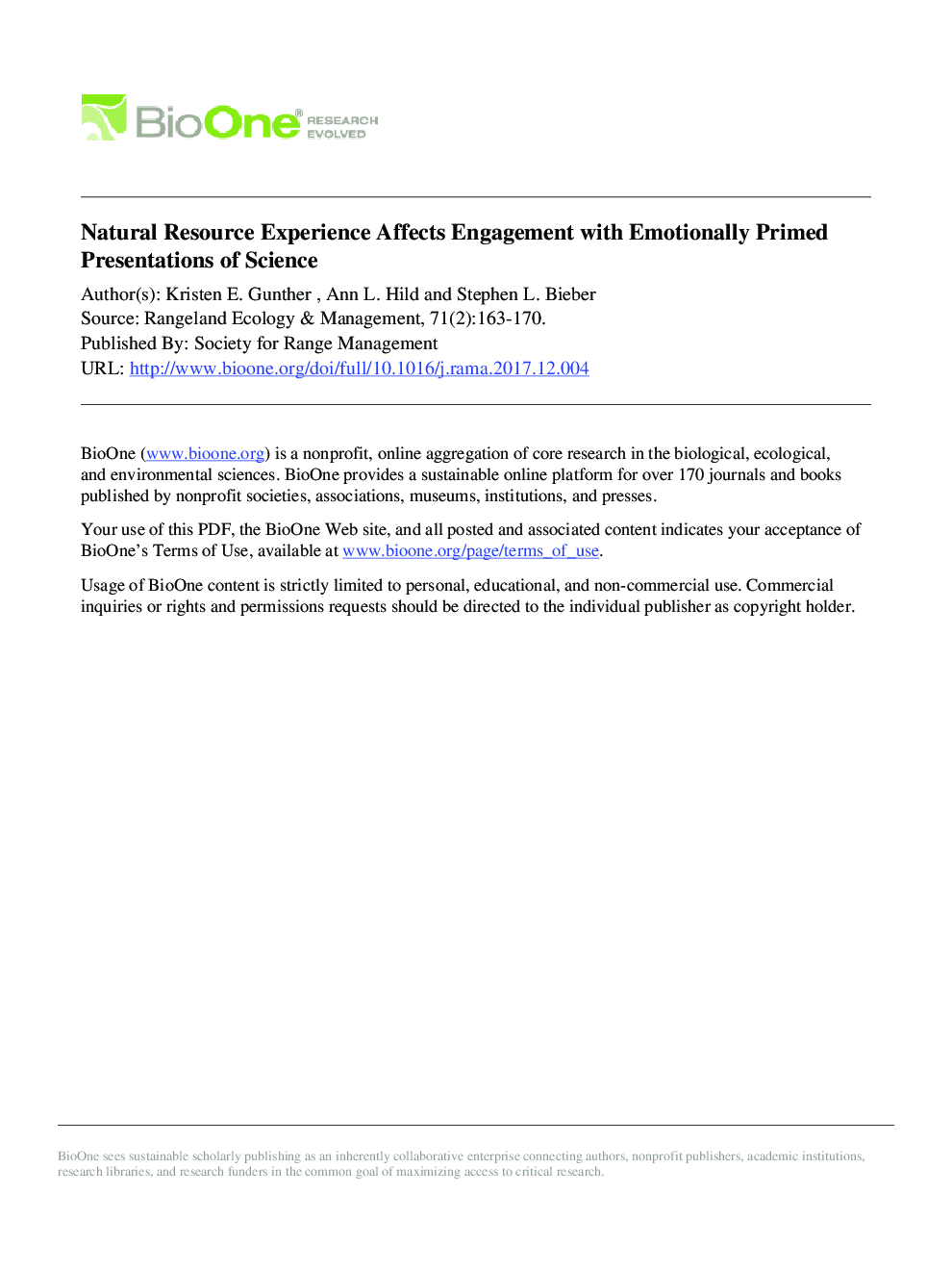| Article ID | Journal | Published Year | Pages | File Type |
|---|---|---|---|---|
| 8849619 | Rangeland Ecology & Management | 2018 | 9 Pages |
Abstract
Effective ecosystem management is supported by the communication of emerging science to a wide range of ecosystem stakeholders. Management-oriented audiences including policymakers, agency personnel, and agricultural producers vary in their values, beliefs, and experiences and consequently may receive scientific information in unique ways. We examine the impact of priming language presented before technical presentation of ecosystem science using emotionally loaded (“negative” and “positive”) introductory paragraphs (primers). Wyoming ecosystem stakeholders (n = 114) were presented with technical text describing ecosystem uncertainty immediately after they read either positive or negative primers. Respondents with a background in agricultural production were more likely to respond in agreement with the scientific information presented in the text when it was introduced with the negative emotional (risk-based) primer. Respondents without production experience shifted their assessment of scientific information in response to both negative and positive (benefit-based) primers. All participants' responses were varied and unpredictable when technical text was not primed. Emotionally loaded primers did not lead respondents to contradict the scientific knowledge presented in the text, and in several cases primers caused stronger agreement with the text than did the control. We suggest that traditional “neutral” presentation of scientific contexts hinders rather than supports the transmission of scientific concepts and tools to management-oriented audiences. We more readily achieve successful transmission of science when emotional contexts familiar to audiences are evoked. Non-neutral primers followed by technical presentations of scientific concepts can engage audiences to increase potential field applications of emerging science.
Related Topics
Life Sciences
Agricultural and Biological Sciences
Agricultural and Biological Sciences (General)
Authors
Kristen E. Gunther, Ann L. Hild, Stephen L. Bieber,
